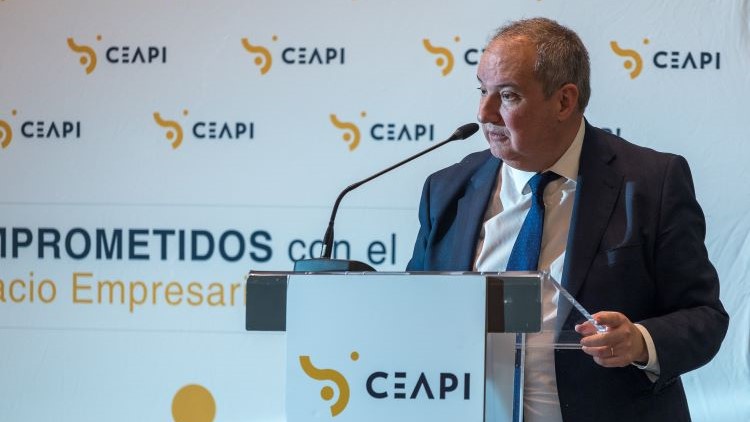Eduardo González
The delegation of the Venice Commission of the Council of Europe that traveled this week to Spain to gather information on the proposed Amnesty Law concluded its mission yesterday after meeting with the president of the Constitutional Court (TC), Cándido Conde Pumpido, and the Prosecutor General of the State, Álvaro García Ortiz.
The members of the delegation were the secretary of the Commission, the jurist Pierre Garrone; the director of the Commission, the jurist Simona Granata-Menghini; the vice president of Italy, linked to the area of human rights (and Italian Minister of Justice during the Mario Draghi era), Marta Cartabia; the vice president of the Netherlands, Martin Kujier; the jurist and former Bulgarian Prime Minister Philip Dimitrov; and the jurists Regina Kiener (Switzerland) and José Luis-Vargas Vadez (Mexican).
The delegation traveled to Spain at the request of the Senate, which has asked this advisory body of the Council of Europe to examine the Amnesty Law. The text is still up in the air, after Junts’ decision to distance itself from the Government in the second vote in Congress, and has returned to the Congressional Justice Commission, which must issue an opinion before February 21 on the new text which must be voted on in the plenary session of the Chamber.
The Venice Commission will announce its opinion at its plenary session on March 15 and 16, although it could bring forward that deadline. According to the PP, the Commission has no intention of assessing the constitutionality of the text, but rather analyzing whether the separation of powers is guaranteed.
The members of the Commission began their visit to Spain this past Thursday. That day, they were received by the Minister of the Presidency, Justice and Relations with the Cortes, Félix Bolaños, who assured them that the objective of the bill is to contribute to coexistence and that the text fully respects the Constitution, European law and international law. Likewise, he showed them his full willingness to maintain continued contact with the Commission and to resolve any issue that its members want to raise during the process of debate and processing of the text.
They also met on Thursday with representatives of the parties in the Justice Commission of the Congress and the Senate. During the meeting in the Lower House, the spokesperson for the PSOE, Francisco Aranda, assured that the norm has been debated in Congress for more than three months with all the guarantees, the deputy spokesperson for the PP, Cayetana Álvarez de Toledo, warned that what At stake is “not the coexistence of Catalan men and women, but the validity of the rule of law”, and the Junts spokesperson for Justice in Congress, Josep Maria Cervera, defended the need for a comprehensive amnesty that “does not exclude to nobody”.
The delegation was also received on Thursday by the presidents of the two Chambers, the acting president of the General Council of the Judiciary (CGPJ), Vicente Guilarte; the four associations of judges and the Center for Constitutional Studies.
Yesterday, the delegation was received by Conde-Pumpido for “reasons of institutional courtesy,” as reported by the Constitutional Court in a note. During the meeting, he explained to them what the procedures are for challenging laws before this court and assured them that he has not yet ruled on the future law because it has not yet been approved and, therefore, does not apply “at the current time”, since the constitutional control of the Court is “exercised ‘after the fact’ of the laws approved by Parliament.”
Likewise, the members of the Commission were received by Álvaro García Ortiz, who explained what the role of the State Attorney General’s Office will be once the proposed amnesty law comes into force, without going into its content.







